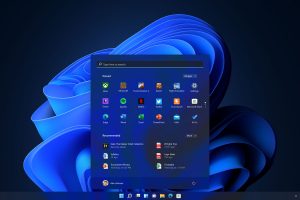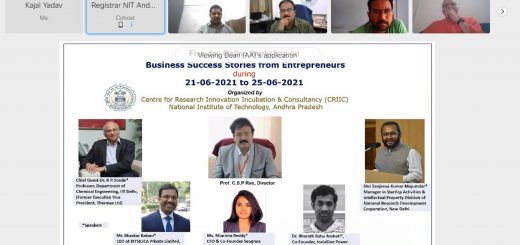Microsoft’s bringing Android apps to Windows 11, but the Indian who’s been doing that for a decade is not worried

Manjil Das, INN/Chennai
Twitter-@SGiggle29 @Infodeaofficial
“There is a pull in the market from consumers, and that pull is creating the space, which is that everyone wants to use their apps on a PC or a Mac,” says Rosen Sharma, CEO of BlueStacks, explaining why he believes Microsoft’s decision to bring Android apps natively to Windows 11 will only benefit his visualisation platform, which allows users to run Android apps on a PC.

Many people were startled when Microsoft announced that Android apps will be coming to Windows 11. However, BlueStacks, a popular and free emulator for running Android apps on Windows and macOS platforms, previously provided a solution. BlueStacks has 40 million monthly active users and over 180 million downloads each year, with over 1 billion downloads to date.
While the announcement of a revised Microsoft Store with an Android app section when Windows 11 launches later this year generated a lot of excitement, the truth is that you won’t be able to download the apps from the Google Play Store. The Android apps will instead be available in Amazon’s app store.
Yes, they’re Android apps, but they’re missing Google Play Services, a crucial Android feature that will be available on smartphones running Google’s mobile operating system. Furthermore, Amazon’s app store is devoid of Google-developed apps. Even Microsoft’s programmes aren’t all missing.
The issue is that most apps are developed for touch rather than mouse and keyboard. “Who is going to do the work to make them mouse and keyboard playable…?” BlueStacks supports a lot of the technology that goes into this,” he added, adding that Microsoft is still in the early phases of this progression. He used Apple as an example, saying that Cupertino has been dealing with a similar issue of bringing iOS apps to macOS, but that its issues are different from Microsoft’s.
Microsoft has been trying for years to get developers on board and make its app store competitive with Apple’s and Google’s, but it hasn’t worked out for the Redmond-based software giant. However, under the leadership of Satya Nadella, Microsoft is courting developers once again by allowing them to charge users using their own payment networks, allowing them to keep 100% of the income generated by their apps. This is an entirely different method from Apple’s App Store standards, which have long required developers to use its own payment infrastructure and collect as much as 30% of any cash produced by apps.
The company’s embrace of openness and the rebirth of an app store demonstrate why it wants Android apps on its new Windows 11 operating system, something that had always been available via emulator software. Microsoft, on the other hand, has a unique threat from not only established software markets like the Apple App Store and Google Play Store, but also Steam and the Epic Games Store, two popular PC game download sites. Getting developers’ attention to publish the programme on the Windows Store, on the other hand, isn’t going to be easy.
According to Sharma, many users want their apps to be available on the desktop, and IT companies will not pass up this opportunity. “If I look ahead a decade, I see cloud-based apps becoming the main trend, and eventually they will be available across all platforms.”




